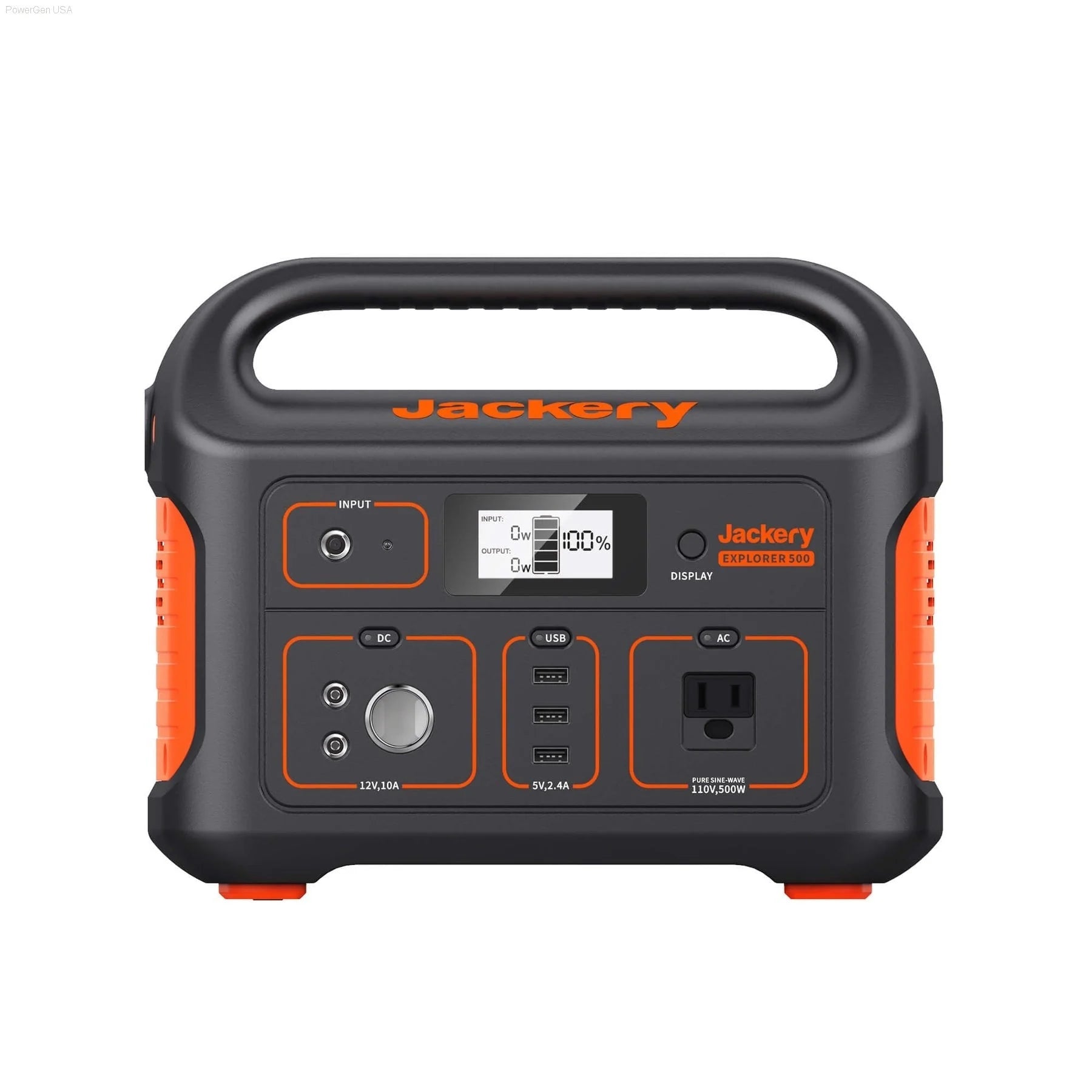Renogy vs Jackery: Unbiased Comparison of Leading Solar Generators
Camping, power cuts, or just flexing your off-grid game? Renogy is tougher and more feature-packed; Jackery wins for sleek, grab-and-go ease. If you’re choosing a portable power station, this guide breaks down both brands—power, price, and performance—so you don’t end up charging your phone with regrets.
Understanding the Core Difference: Components vs. All-in-One Systems
At a glance, Renogy and Jackery may seem similar. But their approach to portable power is quite different.
One offers flexibility and modular design. The other focuses on ease of use with fully integrated units.
Understanding this distinction is the first step to choosing the right one for your needs.

Jackery: The "Plug-and-Play" Power Solution
Jackery is known for its simple, all-in-one power stations.
The Explorer series combines everything you need—battery, inverter, charge controller—into one tidy box. It's ideal for those who want to avoid cables and technical setups.
Its ergonomic handles, clean design, and lightweight builds make it perfect for travel, emergencies, or backyard fun.
Renogy: The DIY and Modular Power Approach
Renogy takes a different route. They let you build your own solar solution.
With Renogy, you can mix and match components: panels, controllers, inverters, and batteries. You get more flexibility—and often more power for the price.
They also offer units like the Renogy Phoenix, blending DIY flexibility with ready-to-use convenience.
Head-to-Head: Comparing Popular Products
Let’s take a closer look at how their flagship offerings compare.
Portable Power Stations: Jackery Explorer vs. Renogy Phoenix
Jackery Explorer models like the 240 and 1000 are well-known for their portability and simplicity. They’re easy to carry, quick to set up, and feature intuitive displays.
| Brand | Model | Battery (Wh) | Max Output (W) |
|---|---|---|---|
| Renogy | Phoenix 100 | 146 | 150 |
| Jackery | Explorer 240 | 240 | 200 |
| Jackery | Explorer 1000 | 1002 | 1000 |
Solar Panels: Jackery SolarSaga vs. Renogy Portable Panels
Jackery’s SolarSaga panels are designed for easy setup with their Explorer units. They fold neatly and connect quickly—perfect for casual use.
Renogy’s monocrystalline panels offer higher efficiency, with premium models reaching up to 21.5% conversion.
Key Decision Factors for Your Use Case

For the Casual Camper or Weekend Warrior: Which is Best?
For short trips or day use, Jackery is the easier pick. It’s light, self-contained, and fast to set up.
Renogy is a strong contender too—but better if you want to expand or pair with existing gear.
For the RV Owner or Van Lifer: A Deeper Look
In this case, Renogy shines. It’s designed to be built into your setup permanently or semi-permanently.
Jackery works well as a secondary unit or for light loads—but Renogy handles fridges, fans, and lighting more reliably.
Emergency Home Backup: Reliability and Capacity
Both brands deliver solid backup options.
Renogy tends to have higher capacity and longer runtimes—ideal for heavier home use. Jackery, meanwhile, is fast to deploy and perfect for powering essentials like Wi-Fi, phones, and lamps.
The Final Verdict: Making the Smart Choice
The choice between Renogy and Jackery ultimately comes down to how you use your power, and how much control you want over it.
Why You Should Choose Jackery?
You Value Simplicity and Ease of Use Above All
Jackery’s "plug in and go" design removes guesswork. It’s perfect if you just want something that works—no faff.
You Need a Highly Portable Solution for Multiple Locations
It’s light, clean, and travels easily. Whether you’re in the garden, on the road, or helping out a neighbour during an outage—Jackery is ready.
You Are New to Solar and Want a User-Friendly Experience
There’s no need to understand voltages or system design. Jackery gives you a full power station in one neat package.

Why You Should Choose Renogy?
You Want to Build a Customised, Semi-Permanent System
If you like tailoring your setup or adding on more gear, Renogy gives you that control. It’s ideal for fixed setups in RVs, cabins, or home installations.
You Are Comfortable with DIY Projects to Maximise Power and Minimise Cost
Renogy is often cheaper per watt—if you’re happy to do a little work. It’s the tinkerer's brand of choice.
You Need to Power a Larger, More Demanding Setup in an RV or Cabin
When you're running fridges, tools, or anything high-powered, Renogy gives you more options and better scalability.






Leave a comment